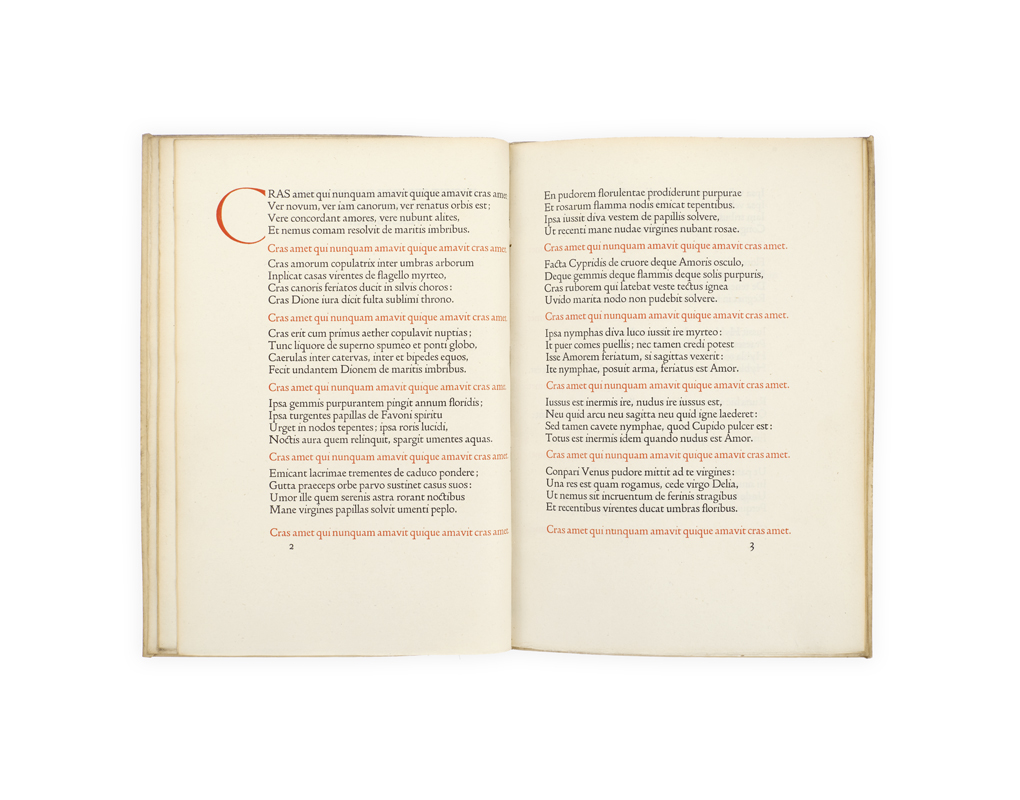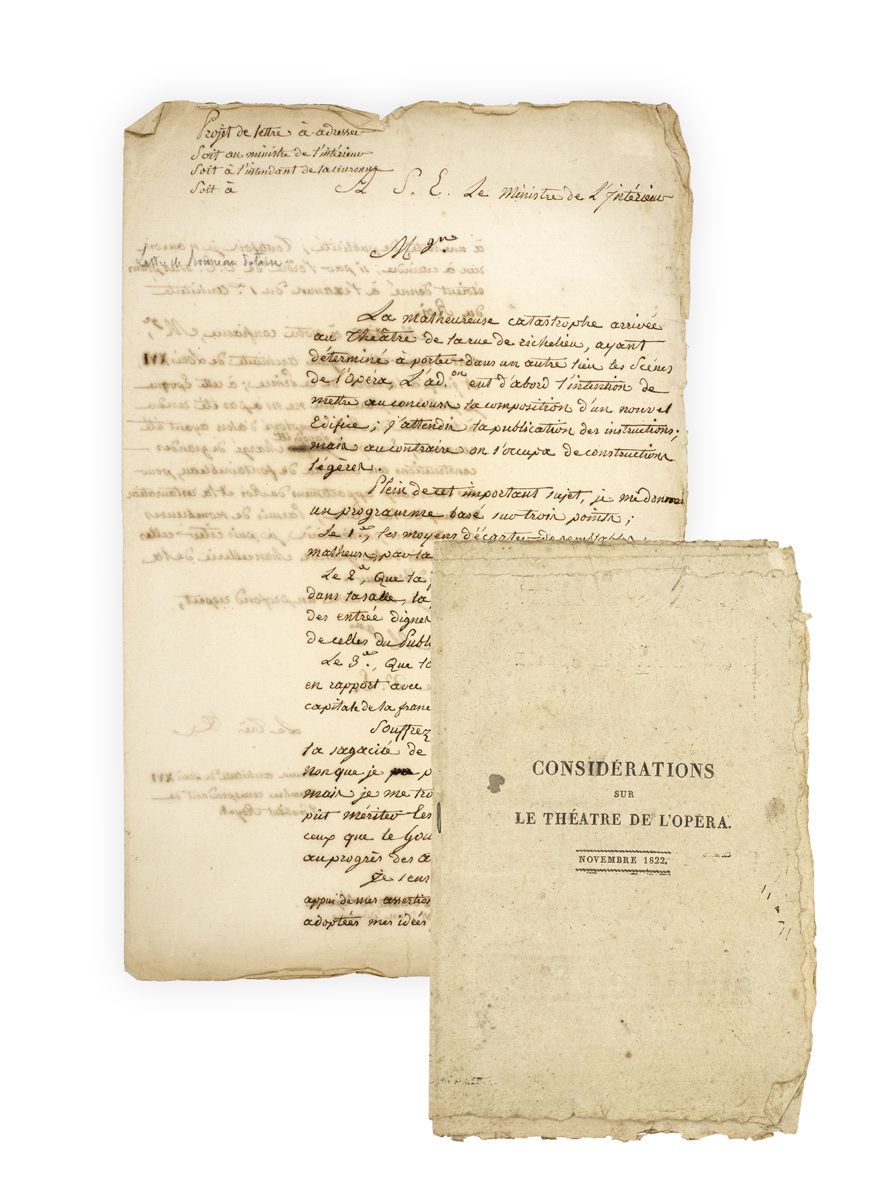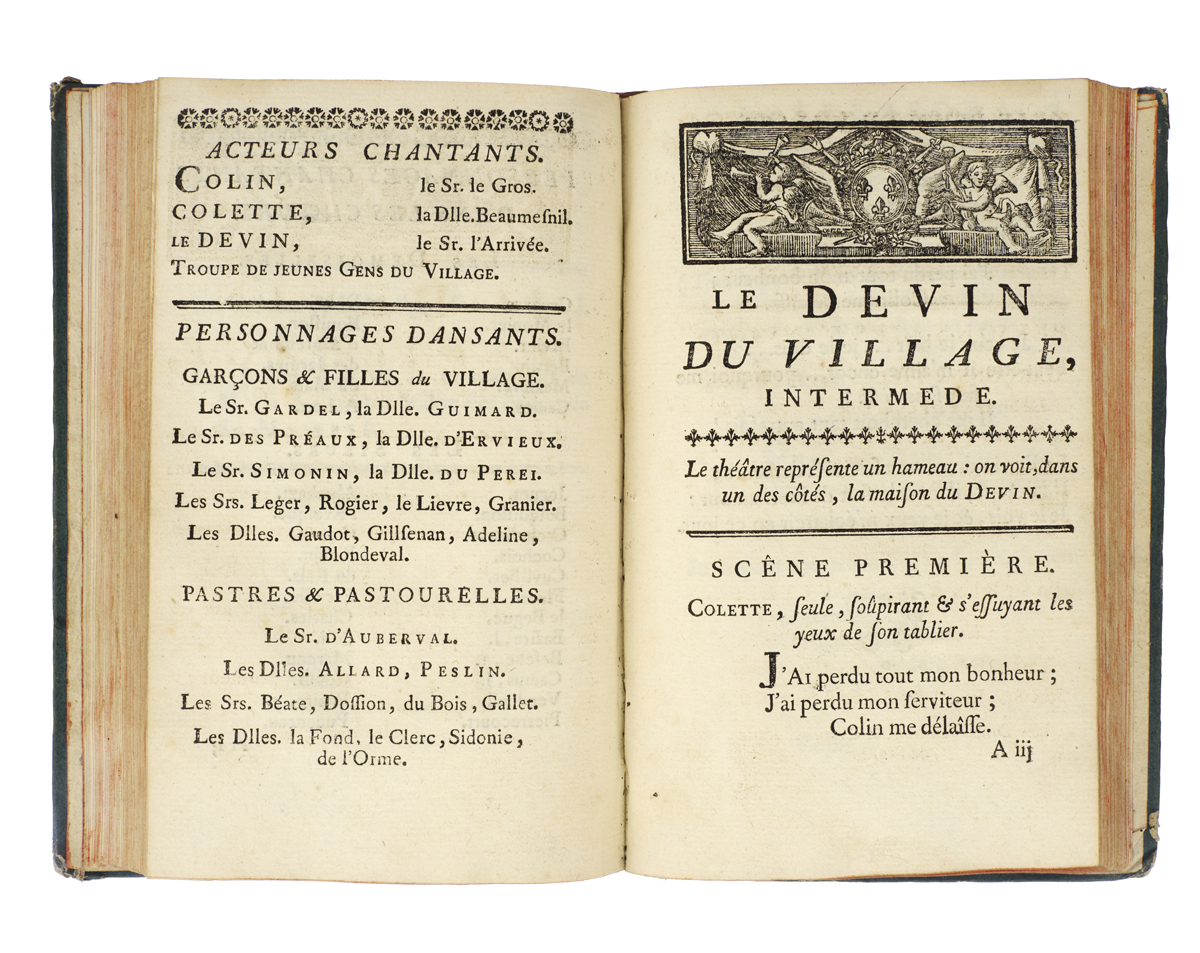
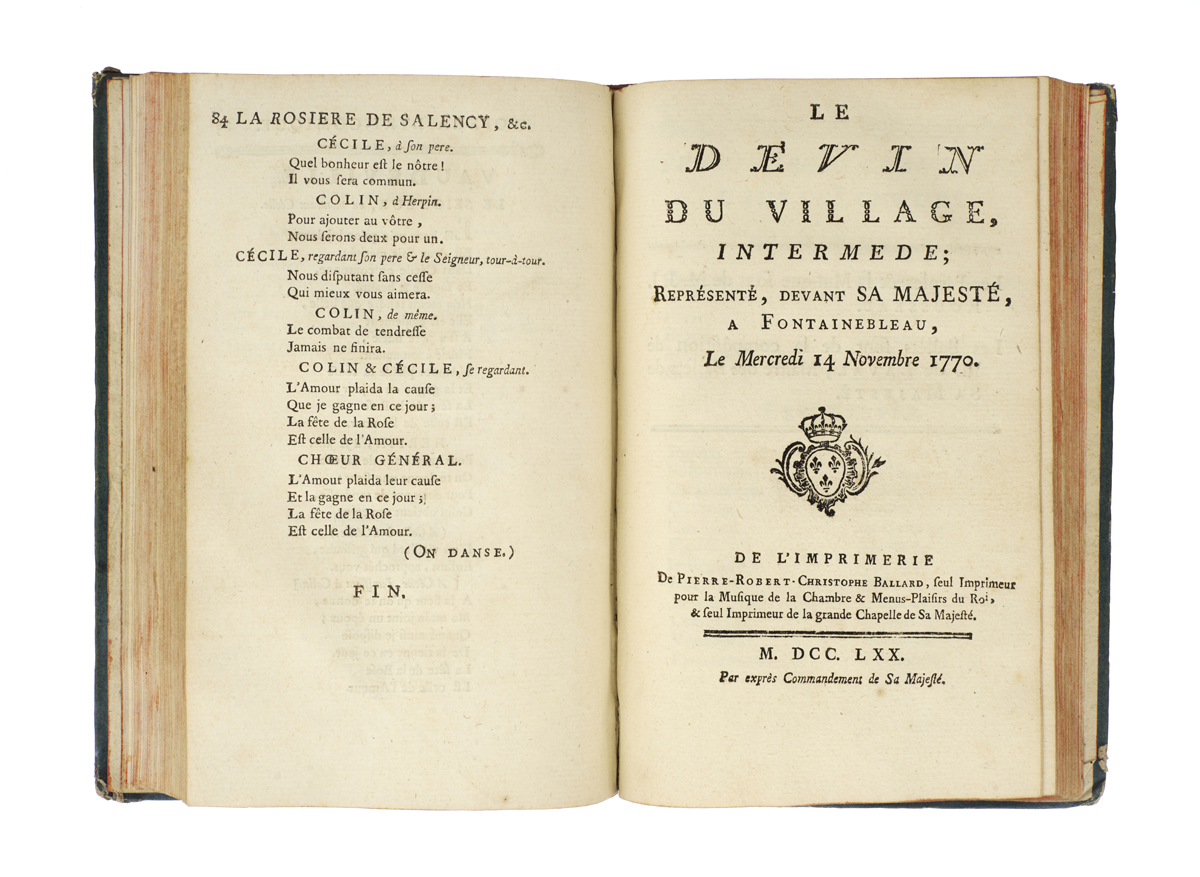
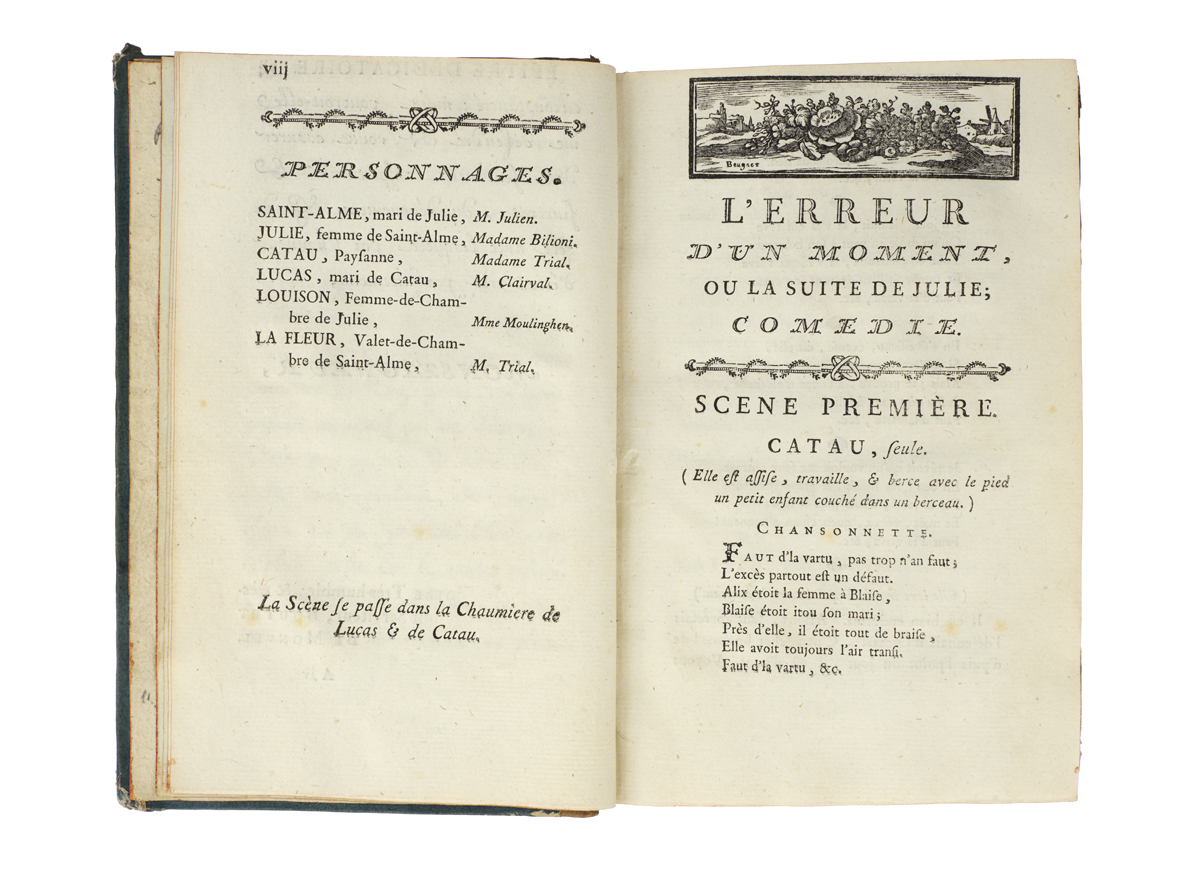
ENLIGHTENED SILENT COMEDY
[ROUSSEAU, Jean-Jacques.]
Le Devin du village, intermede, représenté devant Sa Majesté a Fontainebleau, le Mecredi 14 Novembre 1770.
[Paris,] Pierre-Robert-Christophe Ballard, 1770.
[bound after:]
[MONVEL.] L’Erreur d’un moment, ou la suite de Julie, comédie, mêlée d’arietes et en un acte, représentée devant Sa Majesté, à Fontainebleau, le 16 Octobre 1773. [Paris,] Pierre-Robert-Christophe Ballard, 1773.
[and:]
[FAVART.] La Rosiere de Salency, opera lyri-comique, en quatre actes, représenté devant Sa Majesté à Fontainebleau, le Samedi 23 October 1773. [Paris,] Pierre-Robert-Christophe Ballard, 1773.
[and before:]
[FAVART.] La belle Arsène, comédie-féerie, en trois actes, mêlée devant Sa Majesté à Fontainebleau, le 6 Novembre 1773. [Paris,] P. Robert-Christophe Ballard, 1773.
4 works in one vol., 8vo, pp. Rousseau: 30, [2 (blank)], Monvel: viii, [9]-63, [1 (blank)], La Rosiere: [4], 84, La belle Arsène: 58 (of 60); woodcut arms of France to each title, woodcut headpieces and ornaments throughout, occasional printed music; closely cut in places (sometimes touching the running title in Monvel and on one occasion shaving a few characters in La Rosiere without loss of sense), otherwise very good copies; together in contemporary French mottled calf-backed boards with blue paper sides, spine gilt in compartments with gilt pink paper lettering-piece, edges stained red, a little worn and corners somewhat bumped, tailcap chipped.

Added to your basket:
Le Devin du village, intermede, représenté devant Sa Majesté a Fontainebleau, le Mecredi 14 Novembre 1770.
Rare edition of a later lifetime performance of Rousseau’s influential opera, The Village Soothsayer, in an attractively unsophisticated sammelband of court operas.
Rousseau’s opera, for which he also wrote the libretto, was notable for the lack of any spoken parts, and for its employment of an Italian-influenced opera buffa mode, against the popular seriousness of much French opera. A parable of the triumph of rustic simplicity over decadent urbanity, it was so well-received on its first performance at court in 1752 that Louis XV offered Rousseau a life pension, which he refused. The work transferred to the Opéra in Paris the following year, but when Rousseau published his controversial Lettre sur la musique française later in 1753, the orchestra and singers of the Opéra gathered in the square to burn his effigy, and the work was no longer staged there. It continued to be popular, however, and received an English translation by Burney, The Cunning Man; in 1768 its influence was felt by the twelve-year old Mozart in his Bastien und Bastienne, mildly parodic of the Colin and Colette of Le Devin.
The present edition follows the performance of Le Devin at Fontainebleau on 14 November 1770, and is here bound with the comic operas L’Erreur d’un moment by Jacques-Marie Boutet ‘Monvel’ (1745–1812), La Rosière de Salency by Charles-Simon Favart (1710–1792), and his Belle Arsène (without the final leaf).
OCLC finds two copies of the Devin in France (BnF and Lyons) and only two elsewhere (Institute Voltaire and Harvard). Library Hub finds a possible copy, defective, at Oxford.
